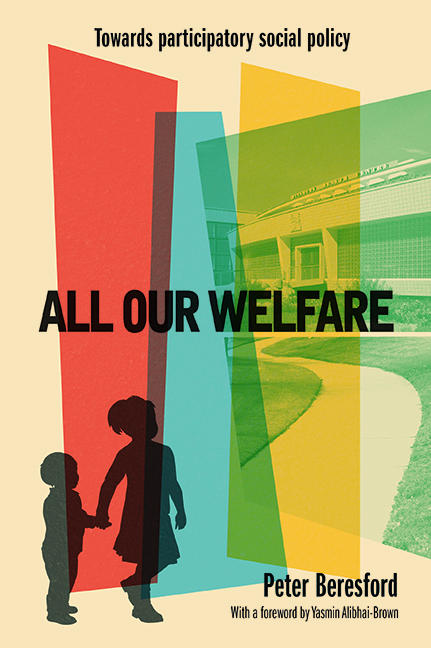Book contents
- Frontmatter
- Contents
- List of photographs and sources
- Foreword
- Dedication
- Acknowledgements
- Introduction Owning not othering our welfare
- Part One The legacy of the past
- Part Two The way to the future
- Afterword The future: a different way forward?
- Appendix One The family
- Appendix Two Research projects and related publications
- References
- Index
Introduction - Owning not othering our welfare
Published online by Cambridge University Press: 01 September 2022
- Frontmatter
- Contents
- List of photographs and sources
- Foreword
- Dedication
- Acknowledgements
- Introduction Owning not othering our welfare
- Part One The legacy of the past
- Part Two The way to the future
- Afterword The future: a different way forward?
- Appendix One The family
- Appendix Two Research projects and related publications
- References
- Index
Summary
I keep my ideals, because in spite of everything I still believe that people are really good at heart.
(Anne Frank)Not for me, not for you, but for us.
(The Motto of the old Borough of Battersea)Now men will go content with what we spoiled.
Or, discontent, boil bloody, and be spilled.
They will be swift with swiftness of the tigress,
None will break ranks, though nations trek from progress.
(From ‘Strange Meeting’, Wilfred Owen, 1918)As I write the Queen is in her ninetieth year. For most of us in Britain, she is the last living link with a past we never knew. This is the past of the royal abdication, the great depression and the suffering of the Second World War – Dunkirk, the Blitz, the fall of Singapore, El Alamein, Normandy and the Holocaust. All of these foreshadowed the creation of the British welfare state, a transformative event in the history of social policy. All of these fundamentally altered the world’s map. Now, that welfare state, which was for many of the Queen’s contemporaries, both the product of and antidote to much of the suffering and loss that they knew when young, is subjected to constant questioning. There is enormous uncertainty about the welfare state and talk of its demise, with some powerful voices pressing for it.
Yet we live in an age that is increasingly reminiscent of the past that gave birth to the welfare state; a past of economic decline, unfettered market, social division, insecure and harsh employment, increasing inequality, poverty and suffering, xenophobia, external conflict and imperial ambitions. This doesn’t just raise large questions about the welfare state but even bigger ones about where we might be heading instead – if it really has run its course. It is with the second of these questions that this book is primarily concerned, although to answer it, it is also important to try and re-examine the welfare state, and social policy more generally. As I have been writing this book, there has been an accelerating flow of headline grabbing books, surveys, inquiries and evidence-based research reports, highlighting that austerity politics were having a particularly damaging effect on the most vulnerable, impoverished and powerless people and groups in society (for example, Duffy, 2014; O’Hara, 2014a).
- Type
- Chapter
- Information
- All our WelfareTowards Participatory Social Policy, pp. 1 - 10Publisher: Bristol University PressPrint publication year: 2016



